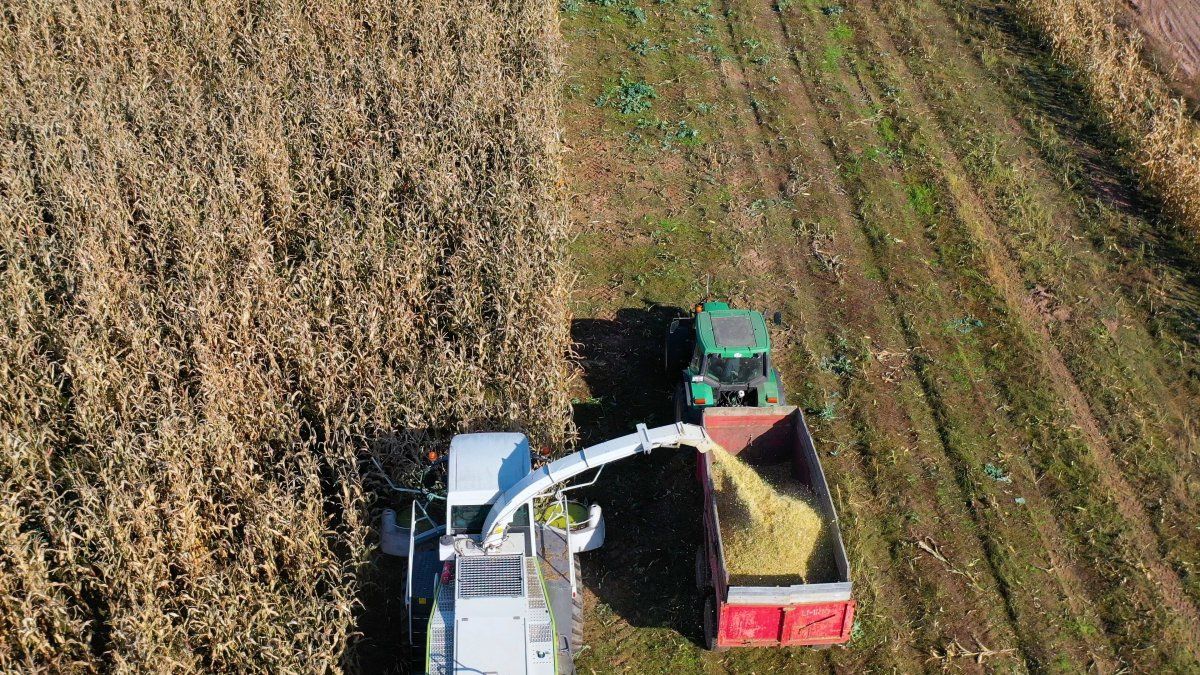The recent announcement of the Argentine government about the New phase of the economic scheme generated enormous expectation within the agricultural sector and although there are those who were more cautious, in general everyone They celebrated the arrival of the new exchange scheme. With key measures such as the elimination of the Blend dollar, the establishment of exchange bands and the flexibility of import payments, the Executive seeks to move towards a economic standardization that aims to stability and competitiveness of the country.
All these measures that will be implemented from next week are historical claims of various productive sectorswhere the field became an undisputed protagonist for both its export relevance and for its investment capacity at the beginning of each productive cycle.
THE NEW FOR THE FIELD
The elimination of the Blend dollar, together with the completion of the 80/20 regime Export settlement, marks an important change for producers and exporters, who so far could receive a better price for their production with the implementation of a more favorable exchange rate. Although analysts consulted by the scope agree that the new price of the dollar as of Monday is above that value, with its disappearance some uncertainty about the purchasing power of the producers is generated against an official exchange rate that could be delayed with respect to inflation.
Luis Caputo Santiago Bausili.jpeg
Caputo and Bausili announcing modifications on the exchange scheme that also impact the agricultural sector.
Archive
This data is extremely important because it is a key factor when defining the commercialization rhythm and the harvest, which in historical terms are certainly delayed. In this sense, Andrea Sarnari, President of the Argentine Agrarian Federation (FAA), said that “leaving the exchange gap and the stocks It is a step forward in normalizing the economy”, Which could translate into significant improvements in the prices perceived by producers.
The establishment of exchange bands between $ 1,000 and $ 1,400, With a monthly adjustment of the 1%it was received with some optimism. This measure promises greater predictability for producers although without the guarantee of stability, since the bands do not prevent a devaluation or a SUSTAINED APPRECIATION OF WEIGHT. However, the ability of the monetary authority to intervene in the exchange market, either buying or selling dollars, could generate a greater certainty environment for supplies purchases Imported, such as machinery and fertilizers. For the agricultural sector, which depends on these inputs for its production, this measure represents an opportunity to plan more in advance and reduce the effects of exchange volatility.
The flexibility of import payments is another measure that, according to experts, could improve logistics and technology availability in the sector. The small and medium agricultural companies (MSMEs) will be benefited mainly, since they can access more quickly to the necessary supplies to modernize and stay competitive. The possibility of making payments with less delay becomes a relief for those who face difficulties with the acquisition of equipment and machinerycrucial factors for the development of agriculture.
Another of the outstanding changes is the possibility of dividends to non -resident shareholders, allowing agricultural companies to capture foreign investments. This turn, authorized from the balances initiated in 2025, opens the door to New joint projects with international investors, such as sowing pools, refrigerators and other initiatives linked to agroindustrial development. In this context, Strategic alliances could be fundamental to strengthen competitiveness of the sector in foreign trade and access resources to enhance the necessary infrastructure.
The announcement of the Bopreal bondswhich will allow the regularization of pre -existing liabilities and debts, is another measure that caught the attention. This instrument could help agricultural companies to normalize your balances and order your financial situationa need that became more urgent in recent years, given the complex economic situation. The possibility of regularizing liabilities with suppliers and matric houses could offer a respite to many companies that had to face liquidity difficulties in the past.
Finally, the agreement with the International Monetary Fund (IMF)which will allow reinforcing reserves of the Central Bankit looks with good eyes from the look of many referents of the sector. This agreement not only aims to stabilize the currency, but also guarantee access to new credit lines and the possibility of improving the liquidity of the financial system in the future. Nicolás Pino, president of the Argentine Rural Society (MRS)He stressed that “the end of the CEPO opens a new horizon for the agricultural sector,” highlighting that this type of reforms could attract more investments and bring greater economic stability.
Agro cows meat field

The agricultural sector sees the measures for exports as beneficial.
Depositphotos
From various entities in the sector, some support for government measures was also expressed. Carlos Castagni, president of Argentine Rural Confederations (CRA)he considered that “every path that aimed stabilize macroeconomicsordering public accounts and recovering trust is positive for the country. ”
José Martins, president of the Buenos Aires Cereal Stock Exchangehe was cautious but stressed that the agreement with the IMF is a “Good news” To strengthen reservations. In addition, he stressed that the elimination of multiple exchange rates and the flexibility of exchange restrictions “is a measure long claimed by agribusiness and necessary for the normalization of the economy. ”Finally, he stressed that the lifting of the stocks for people and flexibility for companies are” important and necessary steps to attract new investments. “
From the Rosario Stock Exchange (BCR)they also supported the measures, highlighting that “It is a fundamental step in the path of ordering the economic variables of our country ” and that, with them, distortions such as the exchange gap that produced so much damage in the economy and in the agroindustrial sector are left behind. Meanwhile, the Argentine Agroindustrial Council (CAA) expressed his support for these reforms, noting that “It is the right path to allow agro -export growth essential for the economic and social development of Argentina ”.
The measures announced by the Government point to economic standardization and the stabilization of the exchange rate. As he said Gustavo Idígoras, president of Ciara-Cecthe way to liberalization of the maintenance and the most competitive exchange rate represents a “Clear orientation towards the recovery of export competitiveness”which, in turn, can generate new opportunities in foreign trade and the global economy.
From now on a New chapter for the economy and agriculturehowever, the deepest changes, those of economic behavior, do not occur overnight and it is likely that to achieve great marketing and subsequent currency liquidation from the beginning of the thick harvest, other events must occur where the external factor also weighs strong. Argentina gave a Key step from domestic correctionbut we should not lose sight of everything happens in an absolutely unpredictable global context.
Source: Ambito




